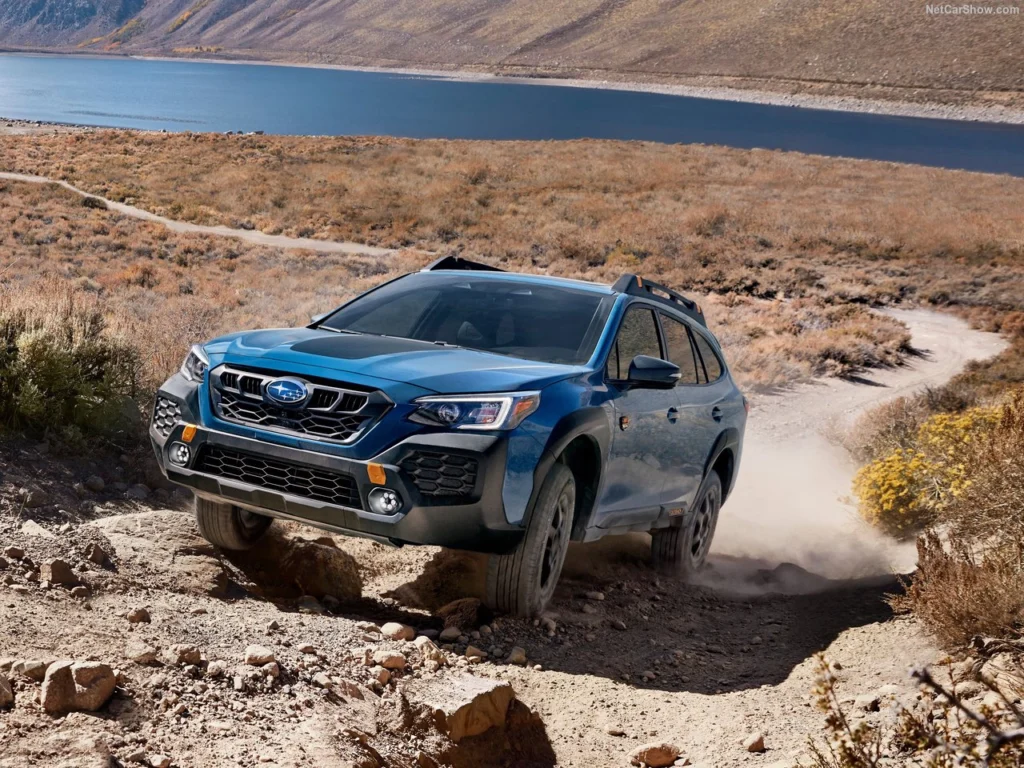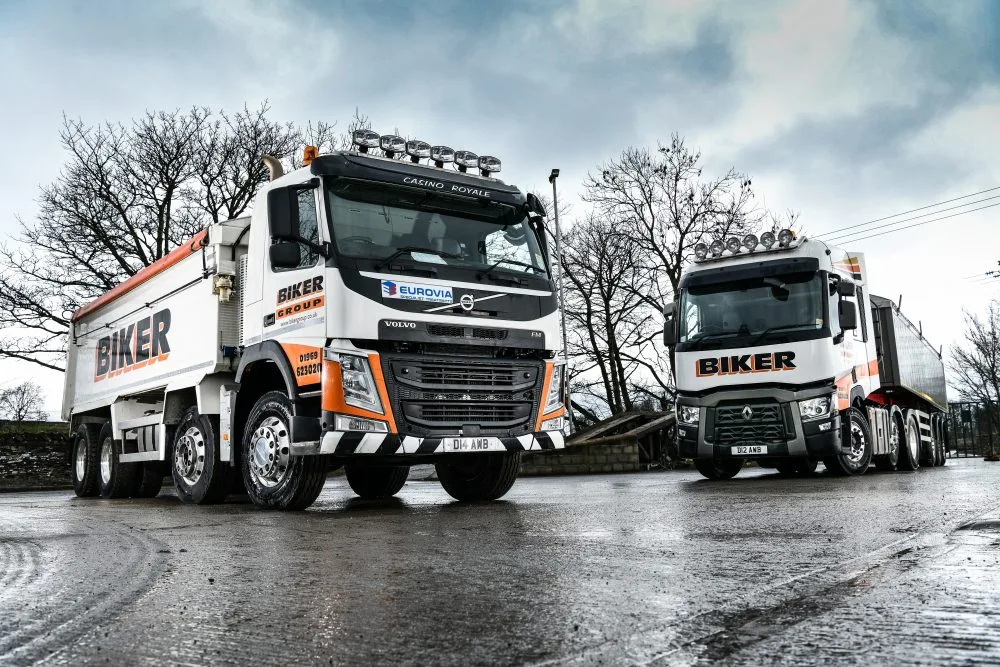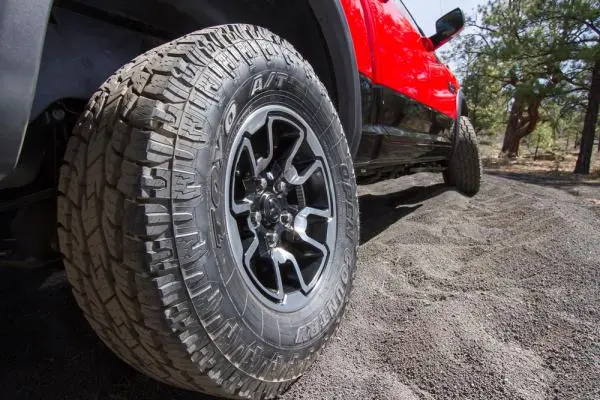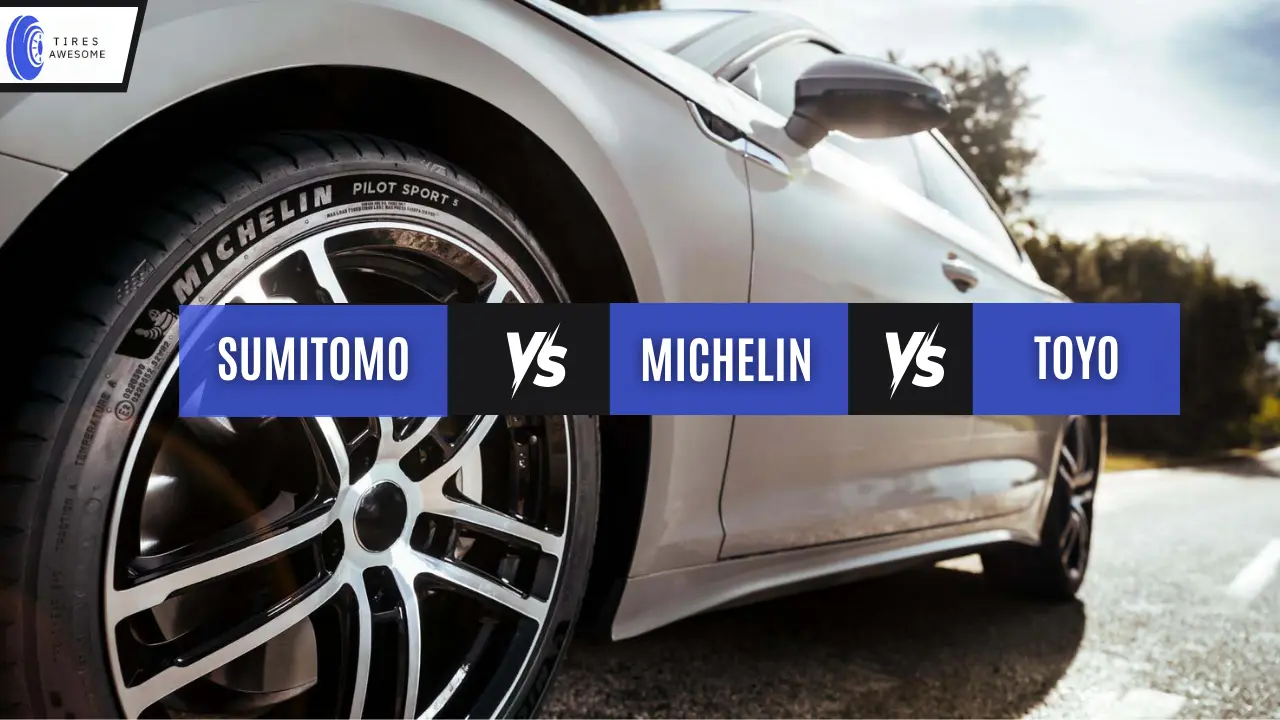Choosing the right brand of tires can be difficult, especially when considering options like Sumitomo vs Michelin vs Toyo. Each brand has unique benefits and features that suit different cars and driving situations. Our detailed list includes market research and customer feedback. This list will provide up-to-date and precise information about these brands’ specifications and performance.
Sumitomo Vs Michelin Vs Toyo Tires: Comparison Table
Sifting through all the different brands and models available can be overwhelming when shopping for tires. We have carefully researched and summarized the critical specifications of various tire brands to provide a quick and easy reference point.
| SUMITOMO | MICHELIN | TOYO | |
| Origin | Japan | France | USA |
| Price | Mide-range | Expensive | Cheapest |
| Performance | Limited overall performance | Best overall performance | Better off-road performance |
| Durability | Least durable and wears out quicker than the five-year average of the other two brands | Best overall durability for heavy loads and day-to-day driving | Good durability but will wear more with heavier loads |
| Tire Variety | Limited winter and off-road tires | Most variety | Wide variety |
| Warranty and Customer service | Good+ 1-Year road hazard protection+ 2-year roadside protection+ 30-day free trial | Best+ 3-year roadside protection+ 60-day free trial | Great’s+ 5-year limited warranty |
Detailed Analysis: Sumitomo Vs Toyo Vs Michelin
Each brand has unique benefits and features that suit different cars and driving situations. Our detailed list includes market research and customer feedback. This list will give you up-to-date and precise information about these brands’ specifications and performance.
Origin
Sumitomo’s origin:
Sumitomo is an illustrious company that can trace its roots back to the 1600s in Japan. Sumitomo Tire Company boasts extensive experience and expertise in the tire industry. Their longevity reflects their ability to adapt and thrive in an ever-changing market.
Michelin’s origin:
Michelin, a French company founded in 1889, has garnered widespread recognition, honed its craftsmanship, and cultivated wisdom that sets it apart from its competitors.

Toyo’s origin:
Toyo Tire originated in Japan during the 1940s but eventually shifted its manufacturing operations to the United States. This move enabled Toyo to tap into different markets.
Price
Sumitomo has positioned itself in the market with a selection of tires that offer excellent value for money. Upper-grade Toyo tires vs Michelin are the most expensive options available.
- These specialize in producing premium tires with a price tag of over $400 per unit.
- While Michelin and Toyo excel at providing high-end tire options, their economy model is the most affordable, typically priced at around $50 per unit.
- With an average price range, Sumitomo tires strike a balance between affordability and quality, neither below $70 nor exceeding $300.
Performance
The Toyo tires have knobby tread designs that provide exceptional traction and grip. Their rugged construction enables them to withstand the rigors of off-road adventures, ensuring durability and longevity.
Michelin offers improved road handling and stability with their alternating tread designs and radial rubber strength. This innovative design feature enables the tires to evacuate water from the contact patch effectively during wet conditions.
Sumitomo tires have certain limitations regarding performance on snow and ice. While they offer various tire options that work well in normal driving conditions, their performance ability in winter weather might need to improve.

Durability
Sumitomo tires perform adequately for everyday driving, but their performance can be less than optimal when faced with rough terrain or challenging weather conditions. Tires can be a cost-effective choice.
The Michelin tires lasted for an impressive ten years without needing replacement. Michelin notes that Toyo tires tend to burn up slightly faster when subjected to heavier loads or demanding circumstances.
In terms of durability, these tires typically last around five years, assuming you diligently maintain them. Regular tire rotations—ideally every 5,000 to 8,000 miles—will help extend their lifespan even further.
Tire Variety
Michelin’s tires exhibit enhanced traction and improved handling capabilities compared to economy choices. Regarding tire options, Toyo presents various types of tires available to cater to diverse preferences and needs.

Toyo, in terms of variety and quality, offers an extensive lineup of tires designed specifically for these situations, ensuring superior traction and handling throughout the year.
Sumitomo’s tire collection for passenger cars and trucks may need to be more impressive, but it does offer some variety within its range. It is crucial to highlight that their options might be limited compared to other brands.
Fuel Efficiency
Comparing fuel efficiency statistics between tire brands like Sumitomo, Michelin, and Toyo, For example, if a car with Michelin tires averages 30 miles per gallon and switching to Sumitomo tires increases that to 32 miles per gallon, this increase of 2 miles per gallon is more tangible in numerical form. Percentages may sometimes mask these details and make it harder to grasp the actual impact on fuel consumption.
By focusing on specific numbers when assessing fuel efficiency across different tire brands, consumers can make better-informed decisions based on real-world differences. A one or two-mile-per-gallon improvement might not seem significant when presented as a percentage but could translate into substantial savings over time in terms of both cost and environmental impact.
Warranty And Customer Service
Michelin: It sets the standard for outstanding customer care in the tire industry with its exceptional three-year coverage and industry-leading roadside assistance. A standout feature of Michelin’s customer service is the generous 60-day trial period offered to all tire buyers.
Sumitomo: It stands out for its exceptional deals on economy tires, which provide a remarkable 70,000 treadwear miles warranty. You may be eligible for a replacement or compensation if your Sumitomo tires fail or wear out prematurely within the specified mileage limit.
Toyo: It also provides a warranty, which includes a five-year limited warranty. This limited warranty only applies if your tires fall within a specific % usage range of 25%.

Sumitomo Tires Vs Michelin Vs Toyo: Which Tire Brand Wins This Face-Off?
Michelin emerges as the top-performing tire brand because of its superior performance across various factors. For cost-conscious consumers seeking an economical option, the Sumitomo tire stands out with its exceptional deals and competitive pricing, offering affordability without compromising quality. Sumitomo provides customers with a 30-day trial period for all tires.
Conclusion
When choosing between Sumitomo vs Michelin vs Toyo tire brands, we have provided comprehensive information and attention to detail to help you make an intelligent and informed decision. Different brands have unique features and benefits that meet different driving needs. Think about things like performance, lifespan, safety features, and cost. This way, you can choose the tire brand that fits your needs. Make an intelligent choice now for better and safer driving in the future.
FAQs
Does Michelin Own Sumitomo?
Sumitomo is a part of the Sumitomo Group, a Japanese conglomerate, and holds ownership of the Dunlop and Falken brands. In contrast, Michelin’s brand collection encompasses Kleber, Uniroyal-Goodrich, SASCAR, Camso, and Michelin tires.
Where Are Michelin Tires Made?
Michelin makes tires in many countries like France, Serbia, Poland, Spain, Germany, the US, the UK, Canada, Brazil, Thailand, Japan, India, Italy, and more. On January 15, 2010, the company closed its Ota plant in Japan. This plant employs 380 people and mainly makes the Michelin X-Ice tire.
Does Bridgestone Own Toyo?
In February 2020, Toyo announced that Bridgestone intends to sell half of its shares in Toyo, which includes 10 million shares bought in 2008. Toyo assured that this upcoming sale will not impact the companies’ existing partnerships and financial connections.

